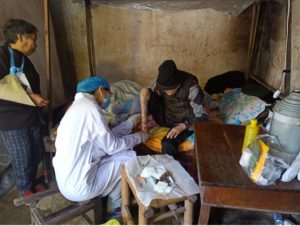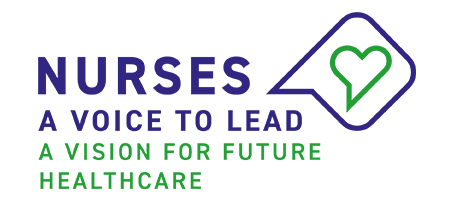Sustainable Development of Wound Care
Contributor: Chen Yu, Head nurse, Outpatient Wound Center, Chengdu Third People’s Hospital
June is Wound Healing Awareness Month, a time to recognise the efforts of our wound care staff and remember that wound care is essential. To celebrate the work of wound care nurses around the world this month, we bring you a story of an innovative nurse from China.

Chen Yu is head nurse of the Outpatient Wound Center at Chengdu Third People’s Hospital. As an International Wound Therapist, she has been exposed to a large number of patients with difficult wounds, including severe diabetic foot ulcers, pressure sores and wounds that have not healed for months to years.
Due to the lack of enough beds in large general hospitals, such as Chengdu Third People’s Hospital, patients are always treated in the outpatient service. However, it is difficult for wound patients to receive comprehensive treatment in outpatient services since special dressings are expensive and not covered by medical insurance, which can result in a heavy economic burden.
In August 2016, Chen Yu decided to tackle this issue. Firstly, inter-hospital and inter-department “10-min wound polyclinic circles” were built, which solved the social problem of the high cost of getting a treatment and difficulty in seeing a doctor that the patients with refractory wounds face. These “polyclinic circles” were formed by signing a cooperation agreement with three community hospitals within a 10-minute walk perimeter of the hospital.
Secondly, the Wound Centre worked with medical equipment manufacturers to put into production the tiny negative pressure wound therapeutic instrument designed by the Centre to reduce the cost for patients.
Thirdly, community nurses were trained periodically, and a nurse professional network group was established to promote discussion and exchange, and conduct case analysis. Based on their experience in the treatment of refractory wounds, Chen Yu’s team was responsible for the local wound treatment of patients, and the community hospitals, due to their advantages in beds, service, and health insurance policies, were responsible for the comprehensive treatment of patients, benefiting more than 200 patients in total and creating a win-win situation for patients, hospitals and communities.
In addition, the “wound care 1+1+N” longitudinal treatment circle was built to help patients and wound clinics around Chengdu. In March 2018, Chen Yu, under the leadership of Assistant Director Li Rui of the medical treatment combination, and with the strong support of Dujiangyan Nursing Department, formed a joint nursing team. With the Dujiangyan Wound Outpatient Service at the centre, consultation, wound nursing extension service and training of wound nurses were conducted in more than ten primary hospitals in the villages and towns around Dujiangyan.
From August 2016 to January 2020, out of more than 520 difficult cases – of which 60% of the patients had diabetes mellitus and 20% had wounds that had not healed for 8 to 24 months – 50% of patients had a cure rate of over 95% after a three-to-six-month treatment. The limbs and functions of 41 patients on the verge of amputation were successfully preserved; 45 patients avoided a second operation; and 59 patients with Grade 4 pressure sores were successfully cured.
In the course of helping and supporting primary medical treatment combinations, Chen Yu found that pressure sore patients and their families were under great economic, psychological and social pressure. To raise awareness of the prevention and treatment of pressure sores, Chen Yu, together with high school student volunteers, set up the Moshang Society, visiting more than 10 pressure sore patients in the surrounding counties and villages of Chengdu. In 2019, on World Pressure Sore Prevention Day, she released the first pressure sore micro-public film in China, Yashang. On the 4th China Disability Prevention Day in August 2020, Chen Yu, together with the Disabled Persons’ Federation and volunteer associations, held a series of lectures on pressure sore prevention, and taught patients and their family members to make their own pressure sore applications and arnebia oil. Nearly 300 patients, family members and community workers attended the lectures, involving nearly 200 communities. To respect social distancing measures due to COVID-19, she plans to gradually conduct on-line lectures and reach those with a high incidence of pressure sores in surrounding counties and villages.
So far, Chen Yu has designed more than ten patents to help patients. In the future, she hopes to donate some personal patent fees to train more wound nurses in less developed and remote counties and cities in China to benefit more patients.

